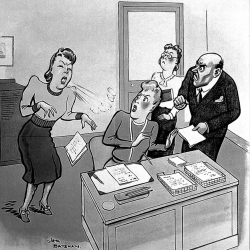To provide the best experiences, we use technologies like cookies to store and/or access device information. Consenting to these technologies will allow us to process data such as browsing behaviour or unique IDs on this site. Not consenting or withdrawing consent, may adversely affect certain features and functions.
The technical storage or access is strictly necessary for the legitimate purpose of enabling the use of a specific service explicitly requested by the subscriber or user, or for the sole purpose of carrying out the transmission of a communication over an electronic communications network.
The technical storage or access is necessary for the legitimate purpose of storing preferences that are not requested by the subscriber or user.
The technical storage or access that is used exclusively for statistical purposes.
The technical storage or access that is used exclusively for anonymous statistical purposes. Without a subpoena, voluntary compliance on the part of your Internet Service Provider, or additional records from a third party, information stored or retrieved for this purpose alone cannot usually be used to identify you.
The technical storage or access is required to create user profiles to send advertising, or to track the user on a website or across several websites for similar marketing purposes.
 Employers should prepare themselves for a dramatic rise in staff taking shared parental leave, a new research report into shifting attitudes to flexible working and childcare for working parents has claimed. While only 7 percent of employees with children have taken up the opportunity of shared parental leave so far, 38 percent of those planning to have further children intend to do so when they have their next child, YouGov polling of 1,000 employees and 500 HR decision makers suggests. (more…)
Employers should prepare themselves for a dramatic rise in staff taking shared parental leave, a new research report into shifting attitudes to flexible working and childcare for working parents has claimed. While only 7 percent of employees with children have taken up the opportunity of shared parental leave so far, 38 percent of those planning to have further children intend to do so when they have their next child, YouGov polling of 1,000 employees and 500 HR decision makers suggests. (more…)






 Nearly a third of freelancers are planning to stop contracting in the UK because the changes to IR35 due in the private sector in April,
Nearly a third of freelancers are planning to stop contracting in the UK because the changes to IR35 due in the private sector in April, 


 The public sector must uphold high standards of conduct when adopting AI, a
The public sector must uphold high standards of conduct when adopting AI, a 
 Over the last 12 months, seven in 10 UK business leaders witnessed presenteeism, where someone come into the office when they are unwell, a survey has claimed. The issue is particularly prevalent at certain times of the year, recruitment firm
Over the last 12 months, seven in 10 UK business leaders witnessed presenteeism, where someone come into the office when they are unwell, a survey has claimed. The issue is particularly prevalent at certain times of the year, recruitment firm 


 GPs issued nearly three-quarters of a million fit notes last year stating that an individual was not fit to work due to a stress-related disorder, new research has claimed. This is a rise of 8 percent compared to 2017/18 (741,210 notes issued, up from 686,670), employment law firm
GPs issued nearly three-quarters of a million fit notes last year stating that an individual was not fit to work due to a stress-related disorder, new research has claimed. This is a rise of 8 percent compared to 2017/18 (741,210 notes issued, up from 686,670), employment law firm 
 Freelancers value the freedom and flexibility of being their own boss but their happiness is most closely correlated with how much money they earn, a survey of 7,000 freelancers has claimed. According to the
Freelancers value the freedom and flexibility of being their own boss but their happiness is most closely correlated with how much money they earn, a survey of 7,000 freelancers has claimed. According to the 


 Some 47 percent of employees who care for both children and elderly relatives (sandwich carers) are keeping these responsibilities hidden from their employer, a survey from
Some 47 percent of employees who care for both children and elderly relatives (sandwich carers) are keeping these responsibilities hidden from their employer, a survey from 
 Two surveys have highlighted continuing fears among freelancers about the changes to the IR35 rules due to take effect in April. The reforms will shift the responsibility for defining contractors’ tax status from the individual to the employer to crack down on so-called ‘disguised employment’, where off-payroll workers are able to pay less tax than employees. However, concerns have been raised that the rules could force organisations to bring genuine contractors and freelancers on to the payroll, reducing flexibility for both parties.
Two surveys have highlighted continuing fears among freelancers about the changes to the IR35 rules due to take effect in April. The reforms will shift the responsibility for defining contractors’ tax status from the individual to the employer to crack down on so-called ‘disguised employment’, where off-payroll workers are able to pay less tax than employees. However, concerns have been raised that the rules could force organisations to bring genuine contractors and freelancers on to the payroll, reducing flexibility for both parties. 







February 13, 2020
What performance culture can teach us about motivating employees in the workplace
by Diane Strohfus • Comment, Workplace